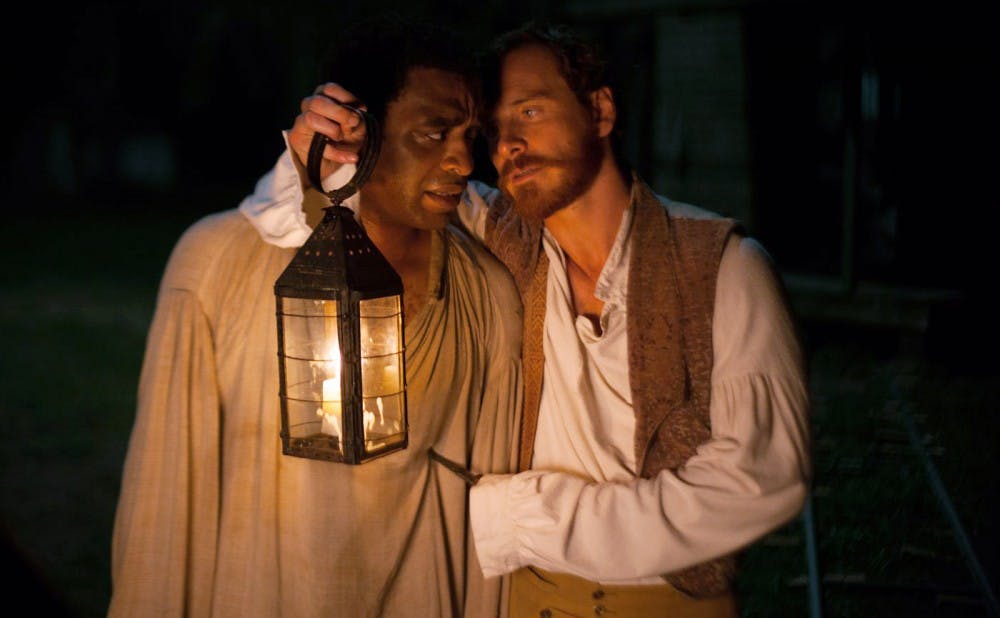Dir. Steve McQueen
20th Century Fox
4.5/5 stars
As the credits for “12 Years a Slave” began, I struggled to fully digest what I had just seen. Images from the film of pure misery kept flashing through my head. Even after I stood, my knees continued to shake. I left the theater quickly, without looking back, as if that would erase what I had seen from my mind—as if that would erase what I had seen from history.
I say all this because I know very few ways to convey the despair that permeates the film. “12 Years a Slave” tells the story of Solomon Northup (Chiwetel Ejiofor), a free black man living in the pre-Civil War Northern states, who is kidnapped and sold into slavery in the South. He eventually winds up in the Deep South as the slave of the relatively sympathetic Mr. Ford (Benedict Cumberbatch). Northup’s education and desire to return home angers the cruel overseer, Tibeats, who is effortlessly portrayed by Paul Dano. Eventually abandoned by Ford, Northup is sent to work the land of the harsh Edwin Epps (Michael Fassbender).
In an Oscar-worthy performance, Fassbender controls his character completely, straddling the line between insanity and sickly sweetness with magnificent ease. In fact, the entire cast delivers stellar performances. This is especially apparent due to the intensely personal cinematography, which never shies from forcing viewers to look characters in the eyes. Not since “Schindler’s List” has a film so effectively portrayed true agony. The scene in which Northup is forced to viciously whip Patsy (Lupita Nyong’o), Mr. Epps’s favored slave girl, stands out as one of the most horrendous.
There were a few moments where the pace of the film slowed to a crawl. While this could have served as a break from the overwhelming despair, it instead only dragged out the unbearable tension. Additionally, the intimate cinematography often led to awkwardly still shots, where characters drifted on and off the screen without the camera following them.
Ultimately, though, this is an incredible film. “12 Years a Slave” pulls no punches. It is bound to humble audiences and affect them long after they leave the theater. As an effective counterpoint to “Django Unchained,” it is a brutally realistic representation of slavery that doesn’t hesitate to show the absolute lowest of human lows.
Get The Chronicle straight to your inbox
Signup for our weekly newsletter. Cancel at any time.

